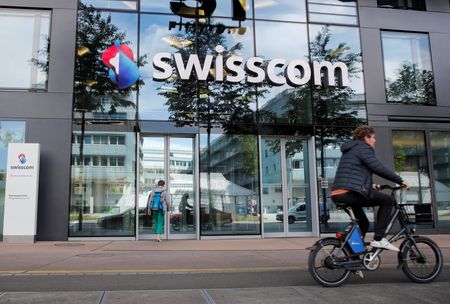ZURICH (Reuters) – The Swiss National Bank should not alter its expansive monetary course until Switzerland’s post-pandemic recovery is firmly established, the Organisation for Economic Cooperation and Development (OECD) said on Thursday.
The Swiss economy has emerged relatively unscathed from the COVID-19 crisis, the OECD said in its latest survey, although it added that some sectors had been hard hit and uncertainties remained high.
The SNB helped companies and banks during the crisis by rolling out an emergency loans guarantee scheme. Its foreign-currency purchases also curbed appreciation pressure on the safe-haven Swiss franc and prevented deflation.
“The SNB’s expansionary monetary policy provided favourable financing conditions and contributed to ample supply of credit and liquidity to the economy,” the OECD said.
This meant companies saw hardly any delays in payments from customers and practically no bad-debt losses, it added.
With Swiss inflation likely to remain moderate there was no need for the SNB to change course, the Paris-based organisation said.
“Monetary policy should therefore remain accommodative, until the domestic economy is firmly on a sustainable recovery path,” the OECD said.
The Swiss economy saw output return to pre-crisis levels in the first half of 2021 after dropping by 2.5% in 2020.
The OECD forecasts economic growth of 3% this year and 1.8% in 2023.
During the crisis generous government support schemes kept companies afloat and maintained incomes, while an effective health system and trust in the government meant less strict lockdowns were needed, the OECD said.
“The rise in unemployment remained subdued thanks to government support, notably the expanded short-time work compensation scheme,” the OECD said.
“The lifting of pandemic restrictions from spring 2021 triggered a quick rebound in activity, but global supply constraints and renewed pressures from the pandemic weighed on the recovery.”
Other uncertainties remained, such as the low vaccination rate in Switzerland, the report added, while government support was still needed.
“Workers in certain sectors risk unemployment in great numbers in case of premature withdrawal of support,” the OECD said.
($1 = 0.9157 Swiss francs)
(Reporting by John Revill; Editing by Michael Shields)











